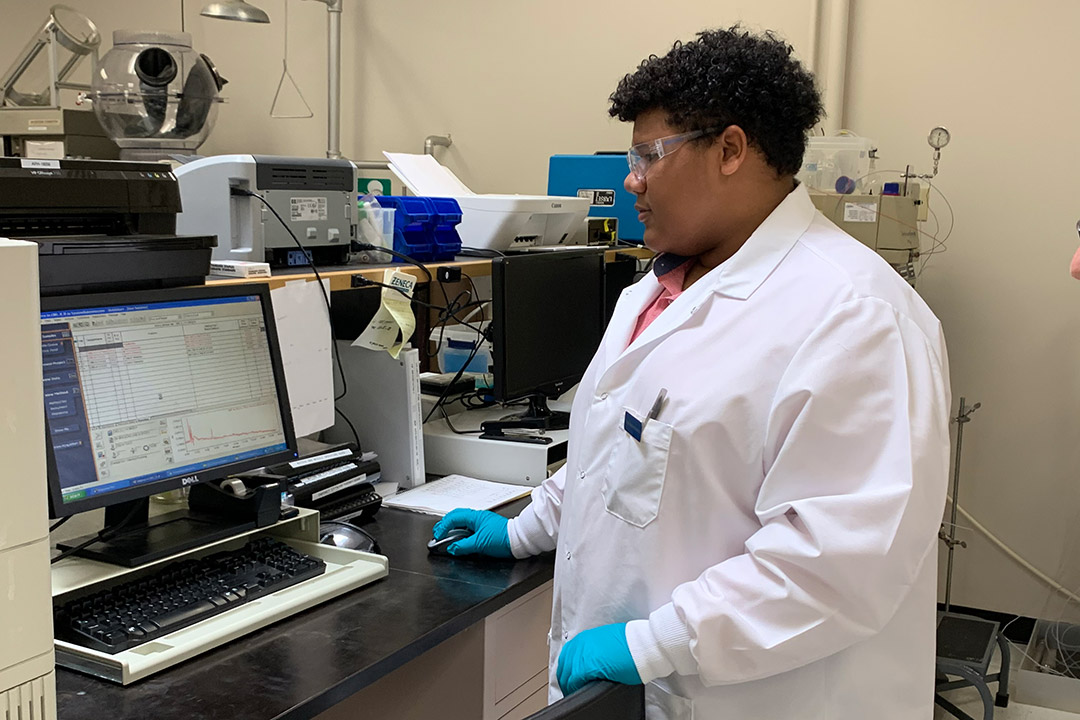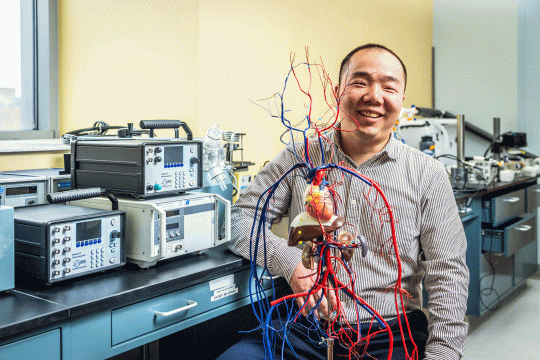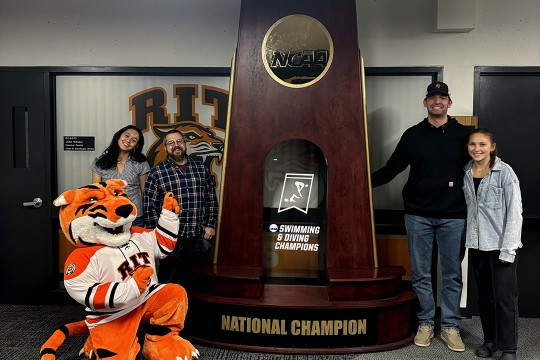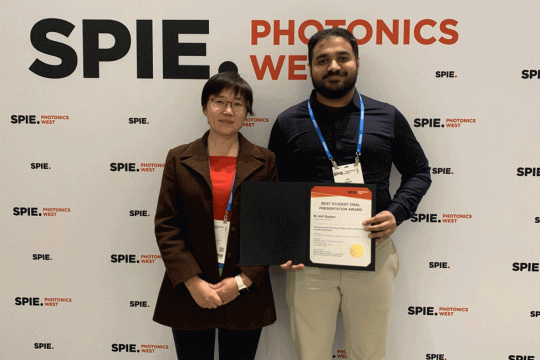Student Spotlight: Chemistry student receives Station1 Frontier Fellowship
Patrick Edwards, a second-year chemistry and public policy double major, participated in research on how to combat opioid use disorder during his fellowship.
Patrick Edwards, a second-year chemistry and public policy double major, was picked from more than 800 applicants to participate in the 2019 Station1 Frontiers Fellowship program. Edwards traveled to Massachusetts from June 9 to Aug. 17 to complete the program. As part of his fellowship, Edwards had the opportunity to intern at Aphios, a company that focuses on enabling technology platforms and enhanced therapeutic products.
The Station1 Frontiers Fellowship program is a prestigious, 10-week residential summer program that provides science and technology education and research and internship opportunities to students across the country. During the fellowship, students are connected with leading science and technology companies or research laboratories so they can get hands-on experience working with new, state-of-the-art technology.
When he isn’t in the lab or in the classroom, Edwards keeps a full schedule of extra curriculars. He is a resident adviser, an MCAS representative for College of Science, the Student Government senator for College of Science, an RIT 365 facilitator and an e-board member for the Black Awareness Coordinating Committee. In addition to all of this, he also is working in a research lab under one of his mentors, Hans Schmitthenner.
To learn more about fellowship and research opportunities in the College of Science, go to https://www.rit.edu/science/experiential-learning#faculty-led-research.
Question: Why did you decide to apply for the Station1 Frontiers Fellowship program?
Answer: I was definitely hesitant to apply at first because I knew how selective the program was. I attribute me ultimately deciding to apply to the support I received from Catherine Mahrt-Washington, Dr. Lea Michel, and Dr. Hans Schmitthenner from the College of Science. All of them were instrumental in helping me see this opportunity as a way to advance my career and begin networking with professionals in my fields of interest.
What was your reaction when you found out you were selected to participate in the fellowship?
I was so excited. This was my first time applying for a fellowship or internship, and to get accepted—especially for something like this with all of its benefits and various avenues for real work experience—I couldn’t even consider the idea of passing on it.
What were the benefits of participating in this program?
I would definitely say it was two main things. The first was the opportunity to interact with so many highly distinguished professionals. It was great to see how well a lot of my interests and future career plans aligned with theirs, and I received really good advice from them about grad school, future fellowships and general tips to navigate higher education as a black man. The second was that the program also offered a lot of opportunities to explore many different industries, like biotechnology, entrepreneurship and public health. We also had the opportunity to take trips to the Lawrence, Mass., area and the MIT campus.
Can you tell us about the research you participated in through this program?
My research topic was looking at ways of eliminating the opioid epidemic from being a public health crisis, which included looking at a lot of the social factors causing the issue. These ranged from socioeconomic status, to availability of treatment clinics, to lack of effective drugs to treat opioid-use disorder. My partner and I looked at two major areas of this issue: the lack of effective pain management drugs and the lack of effective treatment options to prevent relapse and further abuse in patients. Our research was looking at how Cannabidiol, a compound found in the cannabis plant and a fairly popular compound in drug development research for its medicinal benefits, can be used as a primary component in a future, CBD-based oral drug to treat acute pain.
How do you feel RIT helped prepare you for this experience?
In my short time at RIT, I really feel like the university has given me both the tools and lenses of perspective to explore a variety of my personal interests and make decisions to help steer my career aspirations. My mentors, from all different departments and roles on campus, have provided me bits and pieces of knowledge to form this comprehensive tool box of marketable skills that have really helped me standout from a lot of other applicants. I feel this is especially true when it came to applying for summer programs like Station1. Without all this, I highly doubt I would have been as prepared to tackle something of this magnitude.
What is one thing you did during this fellowship that you’re particularly proud of?
It was definitely presenting my final research project. The project was a culmination of all the effort and work both myself and my partner put in during the duration of the 10-week program. To present my work to a variety of other students and professionals and be, in some respects, an expert in my research topic was something I took a lot of pride in.
What is your advice for other students who want to apply to this program or similar research fellowships?
Just apply. You’ll never know for sure if you’ll get in if you don’t. Also, make sure you give yourself adequate time to work on the short answers and essays because, in most cases, it can really make a difference in the committee selecting you over another applicant. Also, be genuine and don’t try too hard to fit into a category. From my experience, a lot of these programs are trying to create a diverse cohort of students from all backgrounds, interests and experiences, so showcase yourself and try to show them who you are.
What are your plans for after graduation?
I’m not entirely sure. I know it will likely be along the lines of something in politics or working with urban poverty in communities that are predominantly comprised of people of color. I’ll definitely be attending law school upon graduation and intend to be a civil rights lawyer and, eventually, pivot into politics. Later on, I can see myself getting my Ph.D. in sociology and become a professor to teach more students at the college level about social issues and how to go about making change in their communities.













